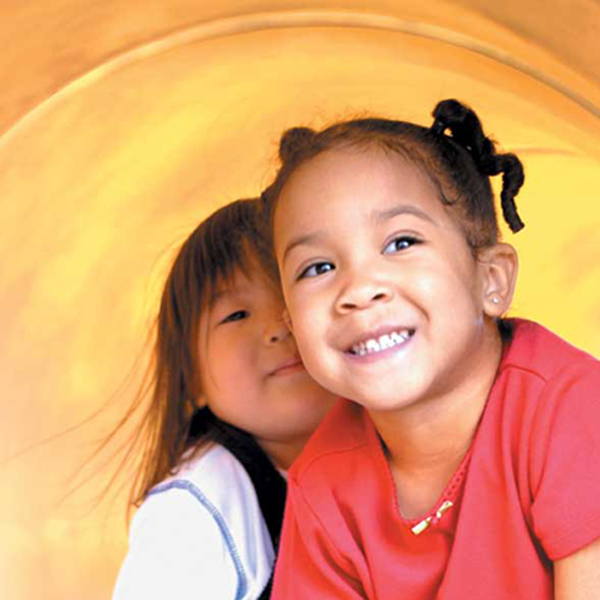The preschool years are a time of wonder, curiosity, and making sense of the world. Children begin to notice similarities and differences among the people around them, and ask about them.
They’re also growing more social, playing with an increasing number of children. And just as your child begins to ask about her adoption (“Why wasn’t I born in your tummy?”), other kids will ask about your family (“Why don’t you look like your mommy?”).
How can you prepare your child for comments and questions about adoption? When a playground pal asks why you’re not his “real mommy,” or your child overhears an adult comment to you about not having “your own children,” what should you do?
By now, adoption is probably a household word. You’ve likely found gentle and comforting ways to talk about the wonderful way you formed your family. But now another layer is needed: discussion about what he may hear from others. Consider these comments and ways to address them.
“My mommy says that’s not your real mommy.”
Possible answer: “My mommy is my forever mommy. She and my daddy adopted me.”
Note: Assess whether your child is ready to talk for herself, or if you need to be there to support her.
“Too bad you couldn’t have your own children.”
Possible answer: “Anna is my child. We are a forever family formed through adoption. It’s a wonderful way to become a family.”
Note: How we handle ourselves will set an example for our children. If your child sees you respond with confidence and pride, so will she.
“Why do you have Chinese eyes and your mom doesn’t?”
Possible answer: “I have Chinese eyes because I was born in China. My mommy was born in America.” Help from Mom: “Ren has such beautiful eyes. Ren and I are the same, too; we both have black hair and long fingers.”
Note: Answer with the simple truth, expand on it if you like, then find ways to demonstrate your similarities. Know that, for the preschooler, being different is just being different.
When kids need more information, they will ask more questions — sometimes a lot more! In these cases, it’s OK to set gentle limits: “We’ve talked enough about Ren. Let’s talk about our favorite animals.” You can also use humor: “Of course I’m her real mommy, do I look like a pretend mommy?”
When you help your child with good responses, you support his positive feelings about being adopted. Follow your child’s lead. He doesn’t have to answer all the questions about adoption; he can walk away. The capacity to discuss being adopted or being different and to set boundaries about it will serve him now — and into adult life.

